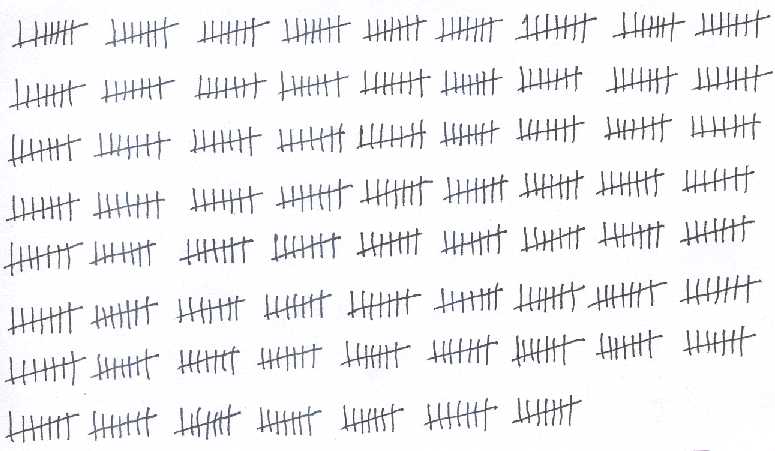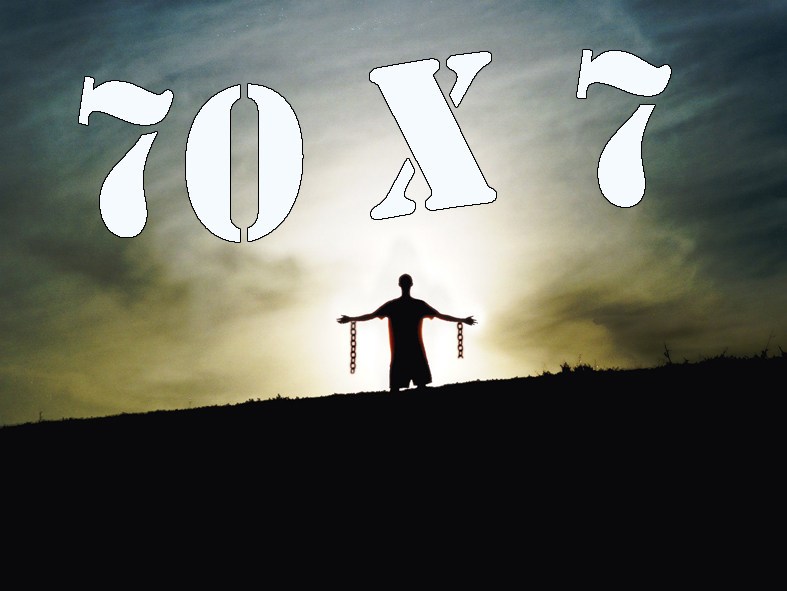Matthew 18:21-22 … Seventy times Seven (07/25/15)
Forgiveness is a funny thing … We desire it deeply when we wrong another, and yet often give it unwillingly (or sometimes not at all) when we ourselves are wronged. And to make matters even more challenging, we have been taught by our parents & our teachers & our preachers & our friends to water our forgiveness down — to thin it out to the point where it has today become almost powerless … Consider:
*Where pure Forgiveness means reaching out to a wrongdoer with gentle deeds of Kindness, modern-day “forgiveness” is often satisfied with weak-willed words; with a callous shrug of the shoulders and a barely audible mumble of mercy …
*Where pure Forgiveness means humbling ourselves fully; on focusing our attention on cleaning the inside of our own cups and atoning for our own misdeeds, modern-day “forgiveness” often has us arrogantly standing over a wrong-doer and publicly criticizing their sins against us …
*Where pure Forgiveness knows no limits and is repeatedly given over & over & over again — no matter how often an “enemy” might harm or trespass, modern-day “forgiveness” chooses to honor the dysfunctional principle of “healthy boundaries”; “forgiving” the same wrongdoing but a few times, and then ceasing to do so once it appears that the wrongdoer has “refused to learn their lesson”.
My Friends, if you are attaching hopes or expectations or conditions to your forgiveness, then you are not Forgiving at all. For real Forgiveness must be fully unlimited in order to BE … And as it turns out, Jesus was a champion of this Truth as well. In the Gospel of Matthew, we see Peter ask Jesus the poignant question, “Lord, if a brother sins against me, how often should I forgive? As many as seven times?” And Jesus gave him an even more poignant answer, saying “Not only seven times [must you forgive him], but seventy times seven times.” (Matthew 18:21-22)
But what is so special about that? … It is interesting to note that this number only appears one other time in the entire Bible — in Genesis 4:24, where Lamech declares that his sins will be AVENGED (the opposite of Forgiveness) to the same degree. And yet we are still left to wonder why this particular number was used. Of course, “seventy times seven” for the Biblical literalist simply means that we need only forgive an enemy 490 times before we can then commence blasting him for his misdeeds, and the same number for most of the rest of us merely means that we must forgive our perpetrators “a lot”. AND YET — as is so often the case when analyzing Scripture — the meanings behind this seemingly innocuous phrase go FAR deeper than that.
You see, in Biblical manuscripts, numbers were most often used purposefully, for in Biblical times, numbers had well-known deeper meanings … In the case at hand, “seven” was a number commonly understood to represent spiritual perfection — or total fullness — or completeness. As such, Peter was not asking Jesus if he was to forgive his brother seven actual times, but rather whether he was required to forgive his brother COMPLETELY for the trespasses done against him. And Jesus response was a radical one indeed — even by today’s standards. For not only did he affirm that we are indeed to FULLY Forgive our brothers & sisters & friends when they harm us, but that we are to Forgive EVERYONE with that same fullness. For “seventy” in his answer to Peter refers to the seventy tribes of humanity mentioned in Genesis 10 — in essence; to every single person on Earth!
And this makes sense when juxtaposing Jesus’ message with this particular answer … For how are we to “Love our enemies” (and thereby “destroy” them by reconciling with them) if we are refusing to Forgive them completely? How are we to embrace others selflessly with genuine acts of Kindness if we are condemning them or criticizing them or judging them or harboring any other type of animosity towards them? We can’t … And THAT is why it is so important for us ALL to go forth and Forgive “seventy times seven” — EVERYONE in our lives, FULLY & completely — remembering as we do so, of course, that Forgiveness is a verb.
Amen … Let it be so.







 ;
;